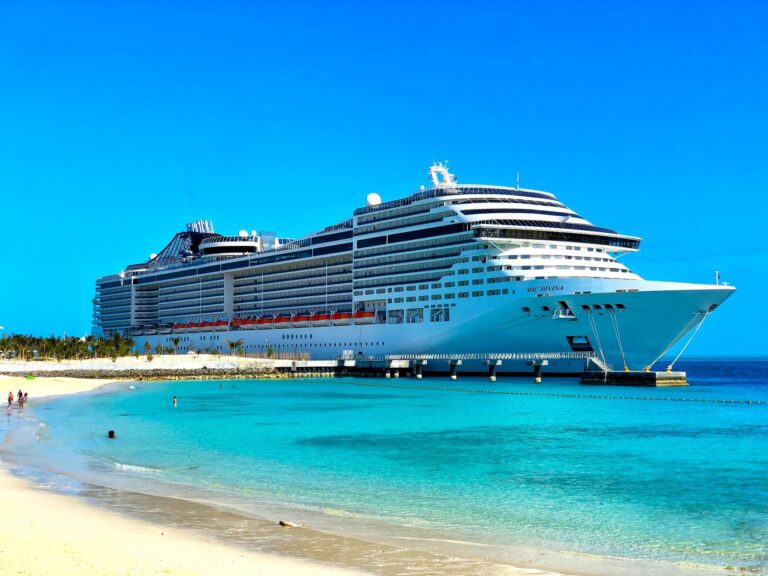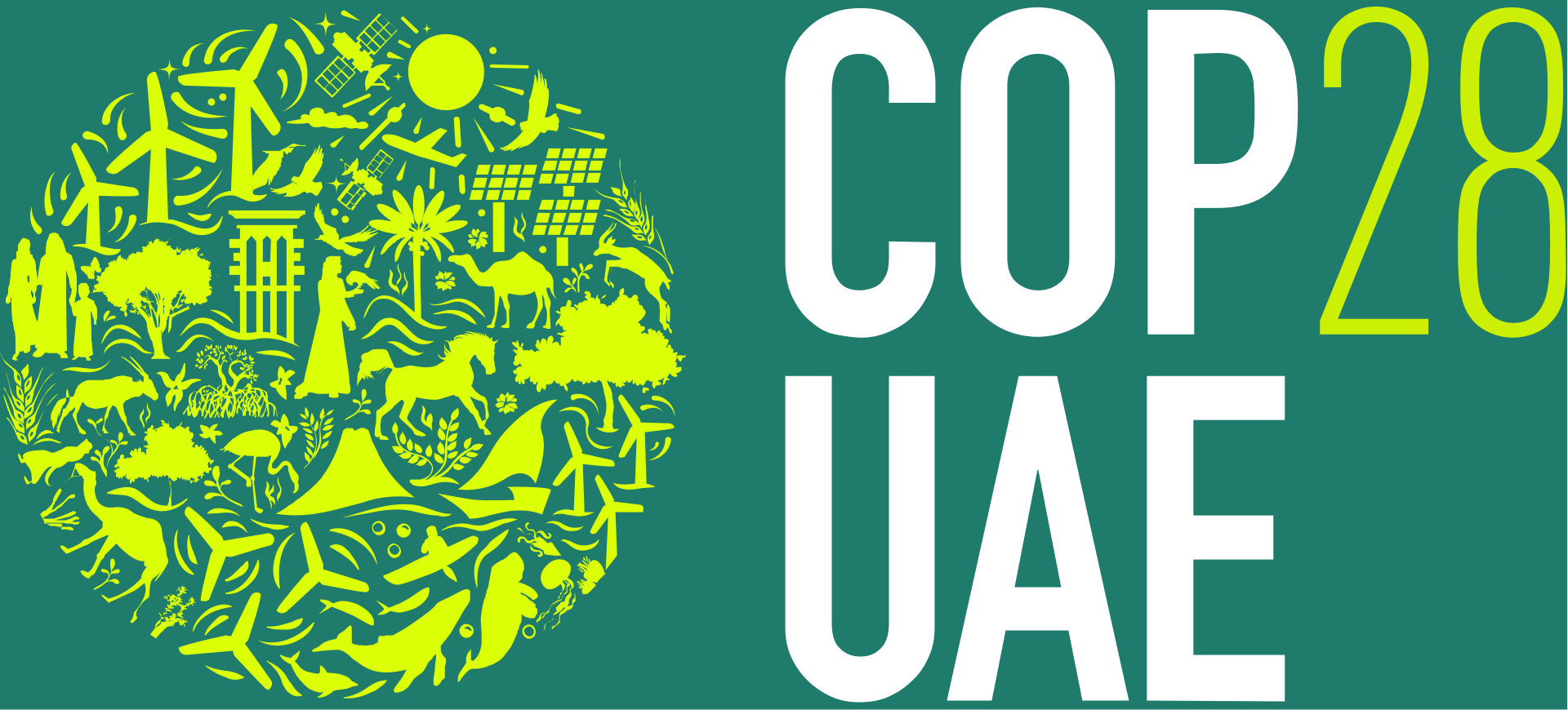
COP28: In The Era of Global Boiling
In July, the UN Chief declared the ‘Era of global boiling has arrived’, in a year marked by heatwaves and wildfires. COP28, an important UN Climate Conference, is currently taking place in Dubai, where world leaders will come together to discuss the urgent action needed. However, when it comes to carbon emissions, we all have more responsibility to bear than we might think.
What is COP28?
The United Nations Climate Change Conferences are held annually and are government-led meetings focused on climate policy to fulfil the obligations of the UN Framework Convention on Climate Change (UNFCCC).
Over 60,000 people are expected to attend COP28, amongst them representatives of member states, industry leaders, indigenous leaders, journalists, and other stakeholders. Controversially, this year it is being held in Dubai, in the United Arab Emirates (UAE). The UAE has already been strongly criticised for its attempt to use the UN Climate conference as an opportunity to strike oil and gas deals. In a year, when the global temperatures already briefly crossed the 2-degree threshold, it’s disheartening to see the fossil fuel business flexing its muscles in such a way.
However, as a recent Oxfam report reveals, wealth per capita is a key driver of the climate crisis. In addition, as the impacts of climate change take hold, so too will it further exacerbate wealth inequality. Environmental disasters such as heatwaves and wildfires are predicted to disproportionately affect vulnerable communities and low-income countries, whilst the rich will be insulated and protected from it.
Wealth and Emissions
It’s already widely accepted that richer nations hold greater responsibility for climate change, with a study confirming that the Global North is responsible for 92% of excess CO2 emissions.
In talking about carbon emissions, it’s important to define the type of emissions. Consumption emissions take into account the carbon emissions generated in the production of goods and services according to where they were consumed – a much truer measure of responsibility for climate change than only looking at the emissions created within a country’s territory. For many of us in the UK, our consumption emissions come from our weekly shop, travel to work, and heating our homes, essentially covering everything we do to facilitate our lives.
The Oxfam Report emphasises the link between higher per capita wealth and carbon emissions – in short that the rich produce more carbon emissions than the poor. The report confirms previous findings that globally, the richest 10% has contributed half of consumption-based carbon emissions.
Who are the 10%?
For many of us, we might think of the richest 10% as millionaires in giant mansions, but the startling reality is that the richest 10% will include many people reading this blog. That’s because we fail to take account of how poor the bottom 50% truly is.
The poorest 50% of the population live on an average income of $5.4 or £4.37 a day and constitute 3.9 billion people who have had a negligible impact on climate change. They are responsible for only 7.7% of carbon emissions yet will unjustly suffer the worst effects.
The richest 10% is anyone with an income higher than $41,000 (£33,256) and constitutes 49.8% of emissions. The UK average salary is £34,963 – the sobering truth is that many of us living in the UK belong to the “richest 10%”, contributing the most to carbon emissions.

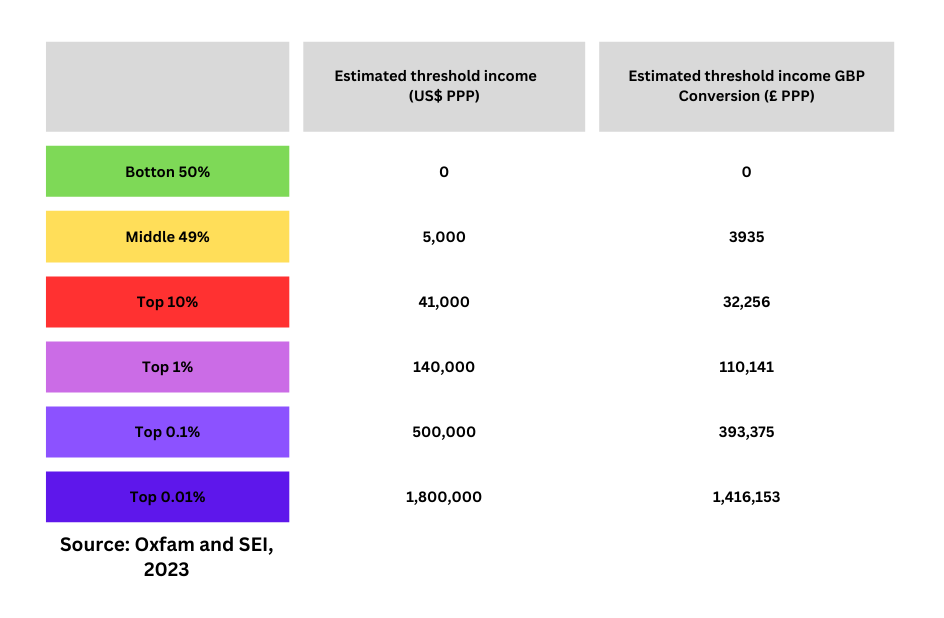
And those we typically think of as the ultra-rich millionaires and above, only make up the 0.01% and have a 0.7% share of total emissions. On an individual basis, it’s clear to see the grossly outsized impact on carbon emissions that the class of the ultra-rich produce with their mega yachts and space rockets, with a handful of billionaires producing more emissions than that of millions of people in the Global South.
Importantly, the Oxfam Report identifies that the ultra-rich have a far greater effect than just through their personal consumption, however. Their investments drive up carbon emissions, particularly through funding fossil fuel companies.
However, without absolving the ultra-rich for their actions, it’s important to recognise the simple fact that the “richest 10%” will include many people who don’t think of themselves as “rich” at all, yet are collectively responsible for half of all emissions. Even those who no one would describe as rich, earning between $5,000 and $41,000 per year, contribute more than a third of all emissions. Wealth matters – but numbers of people matter too.
(You can read a more comprehensive and detailed analysis of the roles of population and wealth in driving climate change in our 2021 blog, here.)
To reduce our collective emissions, we must all take action to reduce our overconsumption of resources, including simple choices one can make to achieve a more sustainable lifestyle.
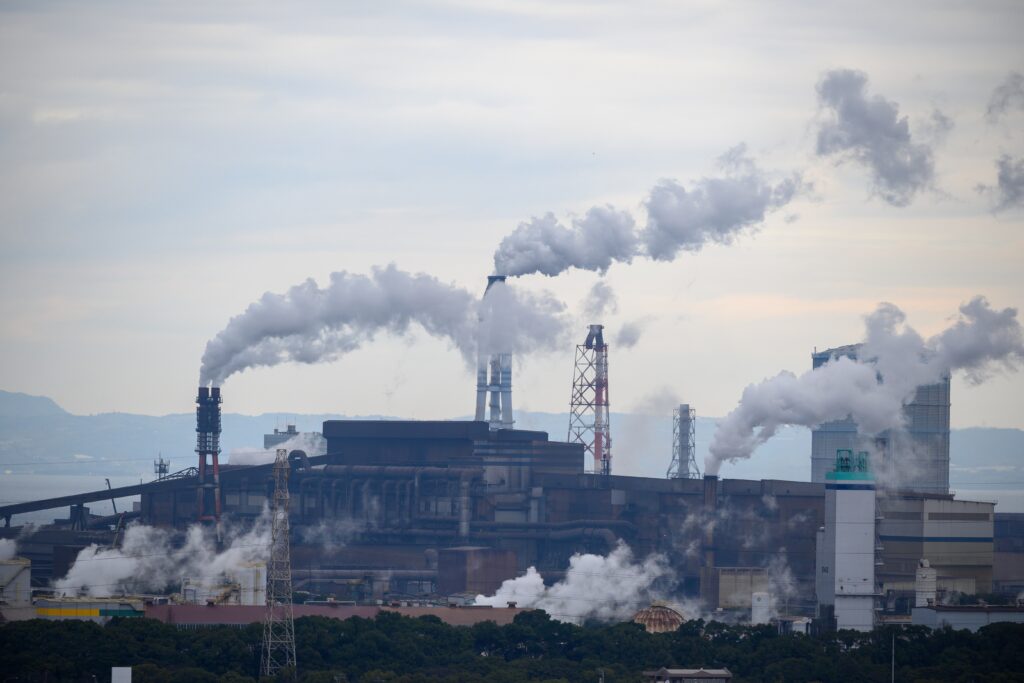
The Carbon Budget
Looking at the global picture, to keep global warming below the 1.5-degree limit above pre-industrial temperatures, and prevent the worst effects of climate change, a ‘carbon budget’ has been calculated. The ‘carbon budget’ is the volume of emissions the world could afford to produce if we are to keep global temperatures rises within the 1.5-degree limit.
Scientists have already declared the remaining carbon budget as “tiny”, an ominous warning that reflects the reality that the carbon budget is rapidly dwindling as emissions targets are not being met. A recent analysis found the remaining carbon budget is 250 billion tons for a 50% chance of keeping below the 1.5-degree limit, equivalent to just six more years at current levels of emissions. If the world is to avoid hitting the 1.5-degree limit, emissions will have to reach net zero by 2034, rather than 2050 as planned, a far faster timescale than any of the current climate policies.
Again, wealth and population count. Between 1990 and 2019, the richest 1% depleted 12% of the world’s historic carbon budget, whilst the poorest 50% used up just 5%. The richest 10%, which includes many citizens of the UK, were responsible for using up 40% of the carbon budget.
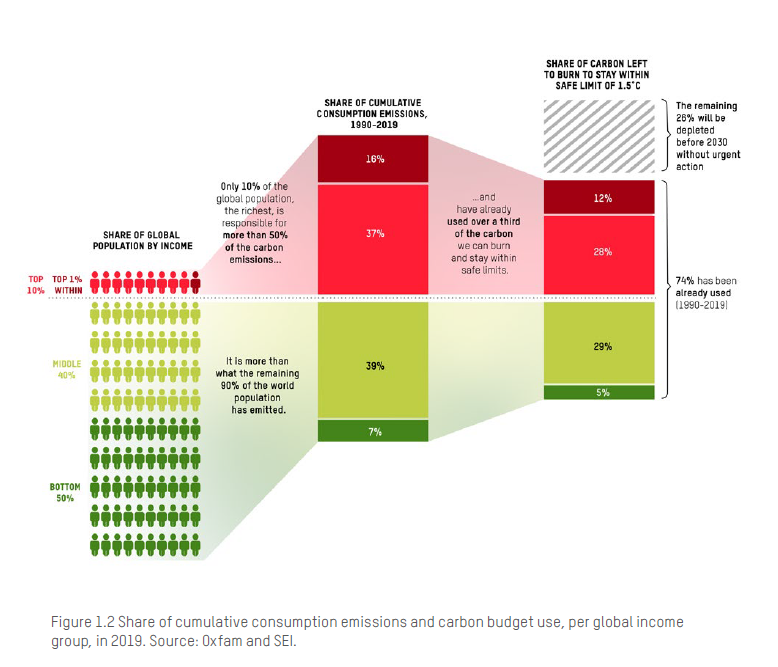
The Population Factor
The good news is that more people than ever are escaping poverty and becoming richer. The bad news is that the more people there are living more affluent lives, the more that will drive collective emissions upward, even as technology and decarbonisation reduces individual impacts.
Globally, Gross Domestic Product (GDP) per capita and population growth remained the strongest drivers of CO2 emissions from fossil fuel combustion in the last decade.”
– Intergovernmental Panel on Climate Change, Sixth Assessment Report, Climate Change 2022: Mitigation of Climate Change

The Oxfam report emphasises the stark wealth inequalities existing in the world, and it’s vital that more people are provided the resources they need to escape poverty and raise their standard of living. However, as the volume of consumption emissions of the UK demonstrates, facilitating our daily lives is an energy intensive process – from transport, to food, to housing, and what’s more is we live in a culture that encourages overconsumption, from new phone upgrades, to fast fashion, to driving SUV cars. Thus, as more people escape poverty, not only will they rightly acquire the resources they need, there is a strong chance they will also acquire the habits of a culture that encourages us to purchase things we don’t need. Either way, the current responsibility is on those of us who are already rich to consume less, and cut our disproportionate share of emissions.
Climate change is a complicated and difficult issue, that requires multiple solutions, most importantly political and economic changes at a pace which reflects the extent of our crisis.
We can and should also address and reverse population growth. By reducing our numbers, we will reduce our demand on resources and curb the rate of future carbon emissions.
Addressing population growth can be done through ethical, positive actions, such as improving access to reproductive healthcare and improving girl’s education, that can all help achieve the UN’s sustainable development goals.
It’s still feasible that the world can meet the 1.5-degree limit if those meeting in Dubai, and all of us, work to reduce our collective emissions rapidly, by reducing our consumption and ending population growth.


